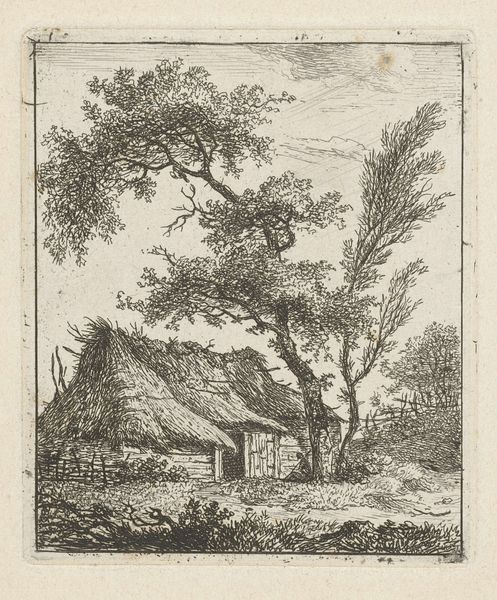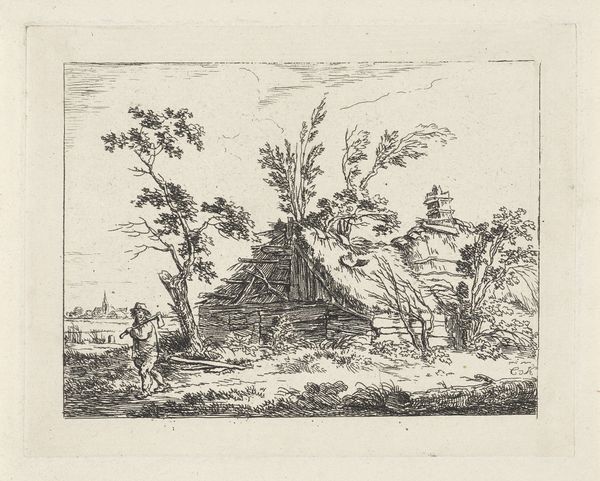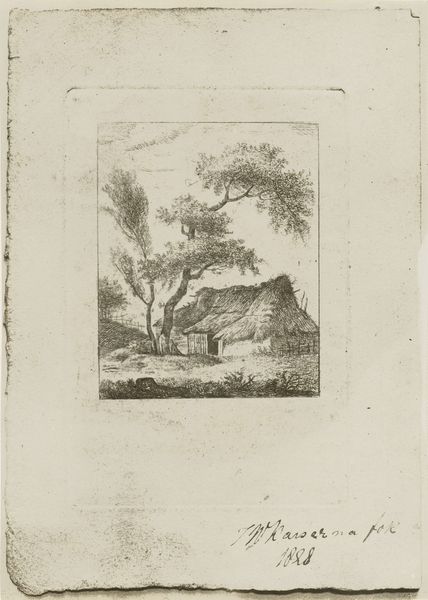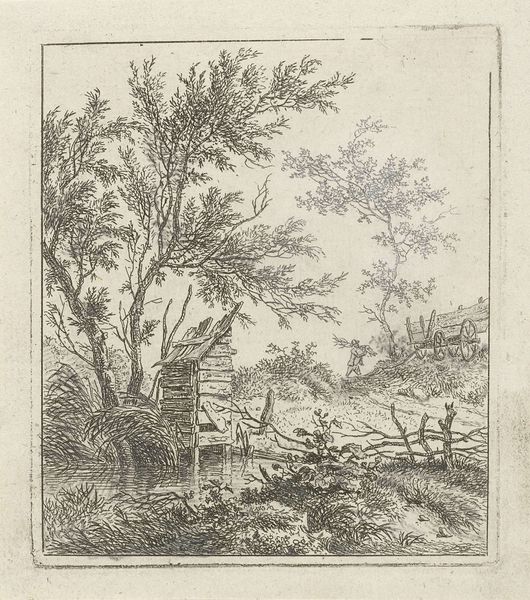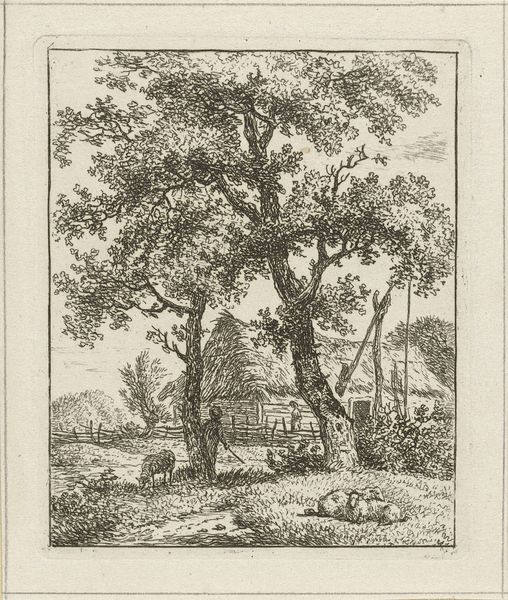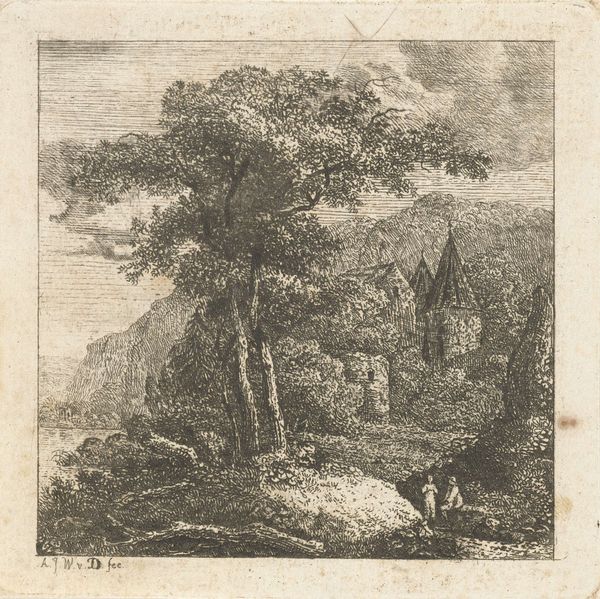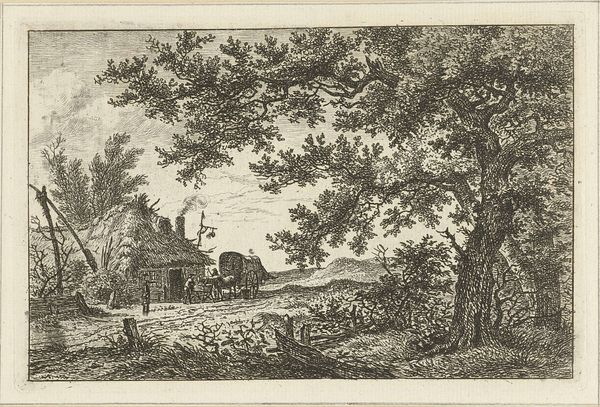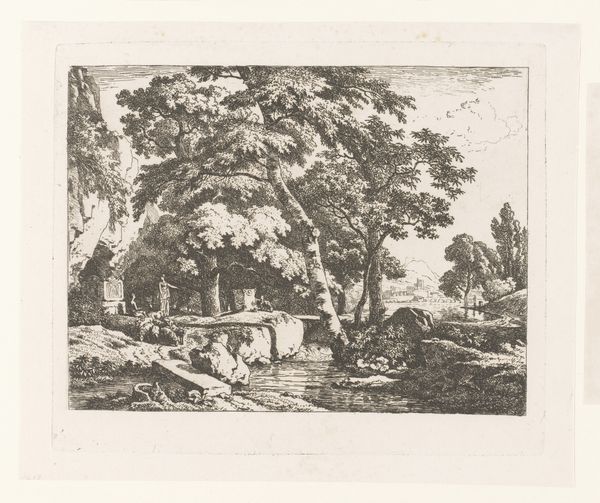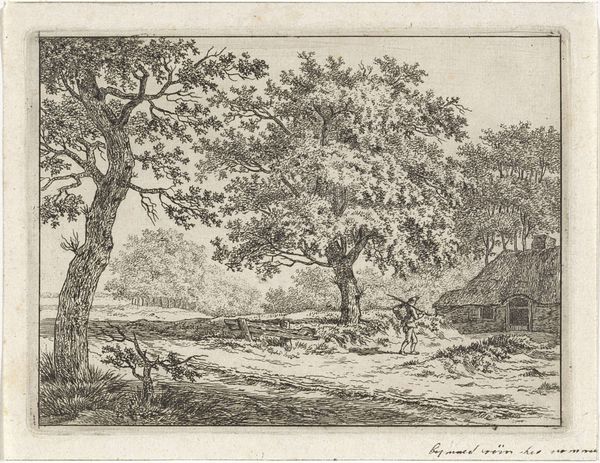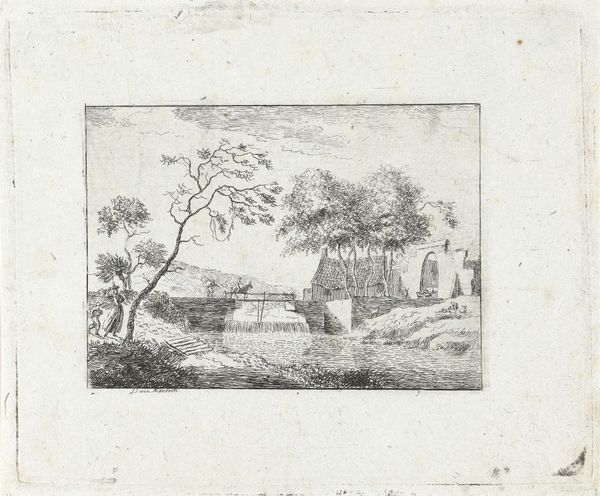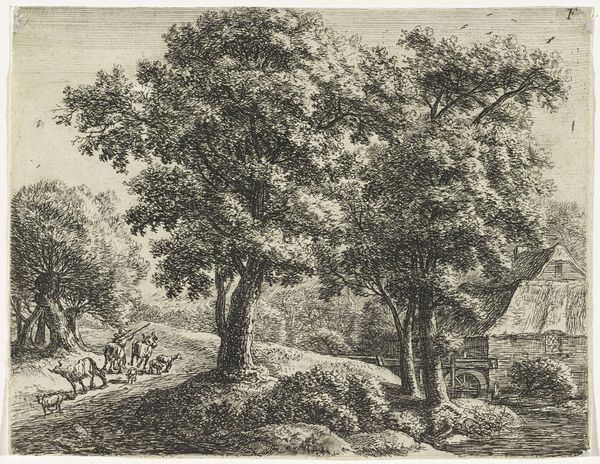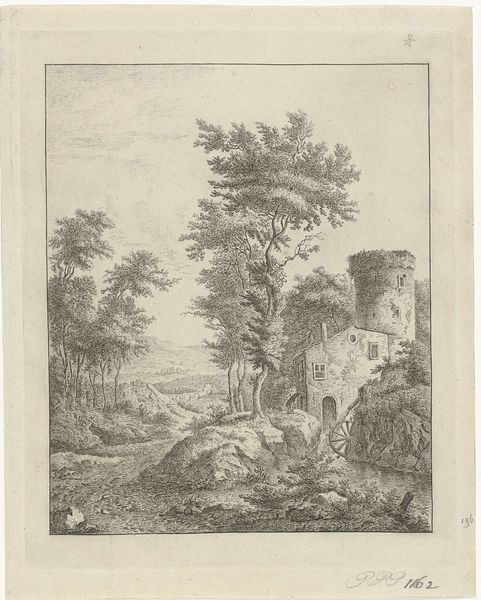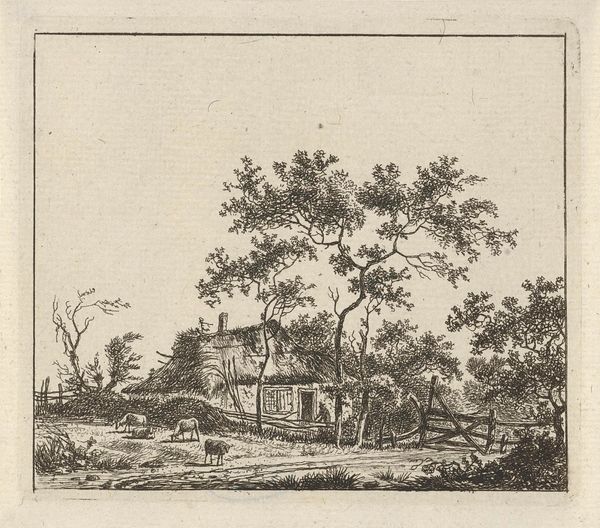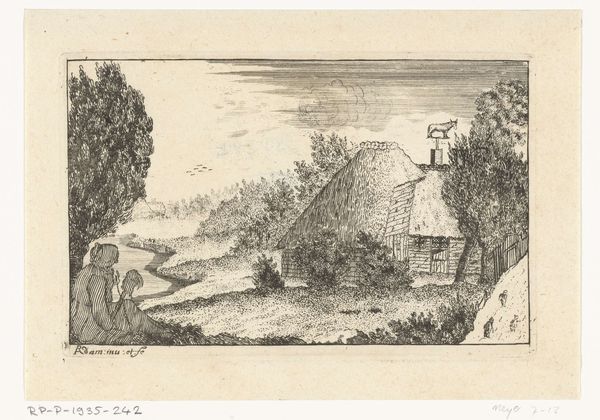
drawing, plein-air, ink, pen
#
drawing
#
garden
#
pen illustration
#
pen sketch
#
plein-air
#
old engraving style
#
landscape
#
personal sketchbook
#
ink
#
ink drawing experimentation
#
romanticism
#
pen-ink sketch
#
botanical drawing
#
pen work
#
sketchbook drawing
#
pen
#
botanical art
Dimensions: height 98 mm, width 85 mm
Copyright: Rijks Museum: Open Domain
Paulus Charles Gerard Poelman created this etching, "Hut onder een boom," or "Hut under a tree," sometime in the first half of the 19th century. At first glance, it seems a charming rural scene. But consider the context: the Netherlands, emerging from French rule and grappling with its identity. Picturesque scenes like this were incredibly popular. They appealed to a rising middle class, eager to define Dutch culture after a period of upheaval. They were turning to the countryside, constructing an idea of Dutchness rooted in rural simplicity and tradition. It's a kind of visual code, contrasting with the more cosmopolitan urban centers. Now, think about what’s missing: there are no people here. Is this a nostalgic vision? A commentary on the changing social landscape? The democratisation of art and rise of the middle class created a demand for idealized images of the countryside. To really dig into this, we need to look at printmaking institutions of the time, sales records, and even literature. The meaning of art lives in its context.
Comments
No comments
Be the first to comment and join the conversation on the ultimate creative platform.
